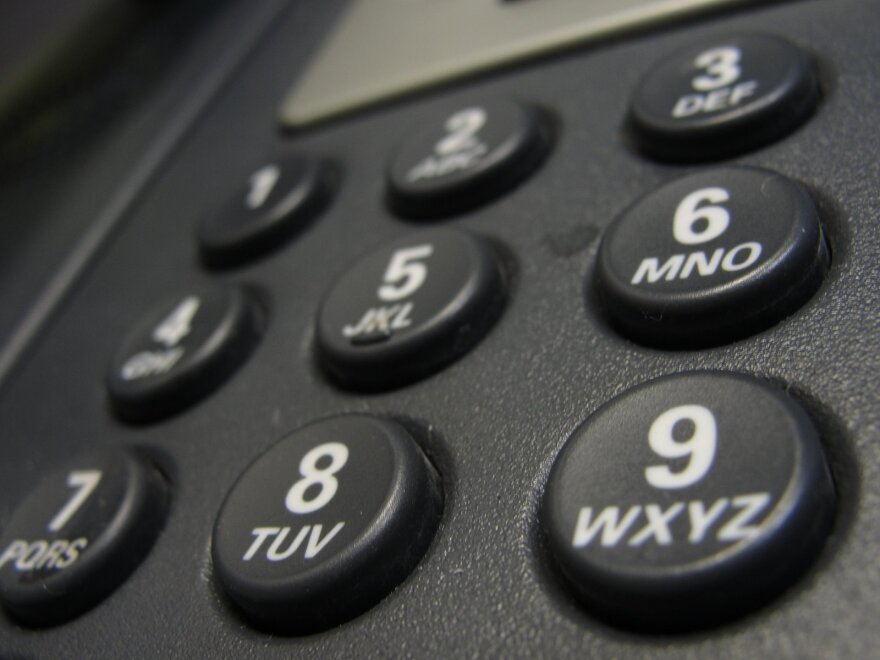A number of senior citizens in the Hudson Valley recently had a chance to ask questions about new Medicare cards that will be issued. The forum was a telephone town hall held with Congressman Sean Patrick Maloney where residents could also ask about veterans benefits.
Maloney, a Democrat from the 18th District, was joined by Kathy Dunphy of National Government Services, who spoke about a new program being rolled out this year to help prevent identity theft. Dunphy says all Medicare cards will be replaced and it will take about a year. Currently, Medicare cards contain the following:
“It’s a social security number with a letter after it and it has your signature,” Dunphy says. “If you’re in the mall or you’re shopping or something and someone took your wallet and takes your Medicare card, there goes your identity. That’s the real world today. You have to be very careful.”
She says the new cards aim to protect one’s identity.
“The number is going to be different looking,” Dunphy says. “It’s going to be a mix of numbers and letters, with no alpha at the end.”
She anticipates Hudson Valley residents will receive their new cards around the beginning of the summer.
“Did you get a Medicare & You 2018 handbook? If you got your Medicare handbook at your home — remember, one handbook goes to each home — if you got your Medicare handbook, you’re good. You’re going to get the card.”
That means Social Security has your correct address. Karen from Carmel in Putnam County had a question for Maloney.
“My question is in regard to possible Medicare cuts. Promises were made during the presidential campaign that there would be no cuts,” Karen says. “Will these promises be kept do you think?”
“Well, listen, I’m not going to support any cuts to Medicare and I think you’re referring to the president, who said that he would oppose cuts as well, so here’s hoping,” Maloney said. “As you know, this president sometimes says different things but, in fairness to them, they have not yet proposed any cuts to Medicare.”
Alice from Poughkeepsie chimed in about hearing aids.
“They are not covered by Medicare. I don’t know about Medicaid, but I bet they’re not covered, which means they’re expensive. And it means that only somewhat well-to-do people can have hearing aids, and that’s so unfair,” Alice said. “And, I’m asking you, Sean, is there any movement to make some legislation to add that hearing aids should be covered by Medicare and Medicaid so poor people can hear as well as well-to-do people.”
Maloney says there is a bill in the House that would expand Medicare coverage to include eyeglasses, hearing aids, and dental care.
“The name is ‘Seniors Have Eyes, Ears, and Teeth’ bill and, (Alice laughs) kind of captures it, doesn’t it, nice and simple,” Maloney says.
“It does,” says Alice.
“There are more than 100 of us right now in Congress that are fighting for that, so we’re not there yet but we are working on it,” says Maloney. “And I will tell you it’s one of the reasons why I do not support cuts to Medicare or Social Security because, you know, it, Medicare isn’t covering all your costs and isn’t covering all the things that you need.”
Dunphy suggested reaching out to a county’s Department of Aging to be steered to local resources that may help with costs. Meantime, Joe Corretjer from the Department of Veterans Affairs reminded callers about a contaminated water regulation signed in January 2017 concerning Camp Lejeune in North Carolina.
“It had been determined that during the period, anyone who served in Camp Lejeune between August 1, 1953 and December 31, 1987 was entitled to presumptive service connection for eight conditions: adult leukemia; aplastic anemia; bladder cancer; kidney cancer; liver cancer; multiple myeloma; non-Hodgkin’s lymphoma and Parkinson’s disease," Corretjer says.
And he mentioned the VA Appeals Improvement and Modernization Act of 2017 intended to simplify the appeals process. Corretjer says it will take 18 months to implement and go live around February 2019.
“For the time being, there’s a process called RAMP, Rapid Appeals Modernization Program, and what’s being done is letters are being sent to veterans with current appeals that may want to opt into this program early, and the VA’s sending out letters," says Corretjer. "It’s by invitation and they’re starting out, we’re sending out to the appellants who have been waiting the longest.”
If veterans opt into RAMP, their appeals would be pushed ahead. He says the VA is sending out letters in batches to handle the flow. Maloney holds several telephone and in-person town halls throughout the year.








